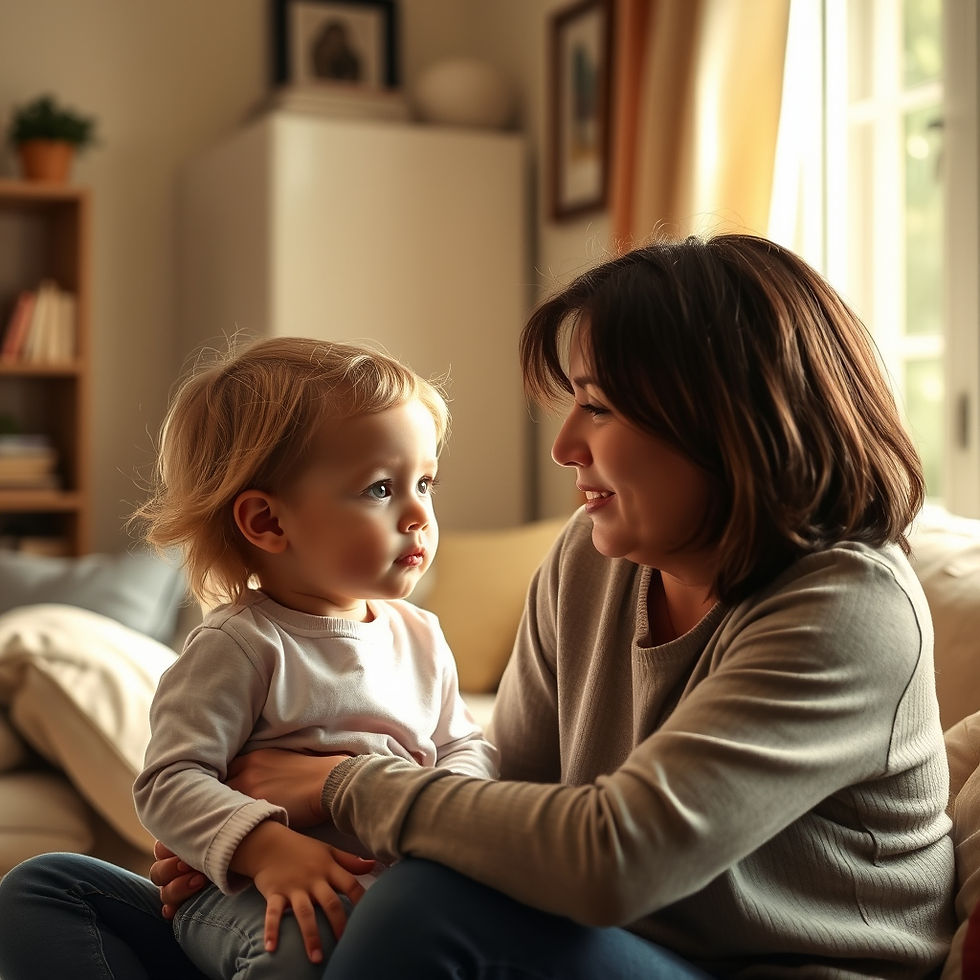Why Every Family Needs a “Do-Nothing Day”
- kriscainlcpc
- Nov 14, 2025
- 4 min read

Introduction: When “Busy” Becomes the Default
Between work, school, sports, errands, and endless to-do lists, modern family life can feel like one long sprint. Parents are often juggling schedules while kids bounce between activities — leaving everyone tired, frazzled, and craving connection.
That’s why at Building Bright Futures (BBF) in Frankfort, we’re on a mission to bring back something simple, powerful, and surprisingly productive: the Do-Nothing Day.
Yes, really. A day where there’s no agenda, no rushing, no “shoulds” — just rest, play, and presence. Because when families slow down, they reconnect, recharge, and remember what matters most.
The Myth of “Always-On” Parenting
Somewhere along the way, being a “good” parent became synonymous with keeping kids constantly busy — every minute filled with enrichment, lessons, and structured fun.
But kids don’t need nonstop activity to grow. In fact, too much stimulation can lead to burnout, frustration, and even anxiety.
Downtime, on the other hand, gives children — and caregivers — space to breathe, reset, and rediscover joy.
BBF Reminder: Rest isn’t laziness. It’s part of healthy development.
Lesson #1: Boredom Breeds Creativity
When kids have unstructured time, their imaginations flourish. Without scheduled activities or screens, they begin to invent their own fun — turning a blanket into a fort or a stick into a magic wand.
These spontaneous moments are what fuel creativity, problem-solving, and independence.
Try this: During your Do-Nothing Day, avoid planning every moment. Instead, say:
“It’s our chill day — let’s see what fun finds us.”
Kids often surprise us with what they come up with when they have time to just be.
Lesson #2: Slowing Down Builds Connection
When everyone’s overscheduled, connection often takes a back seat to logistics. A Do-Nothing Day flips that dynamic.
Without distractions, families naturally reconnect — through laughter, stories, shared meals, or simply sitting together on the couch.
The absence of structure opens the door to spontaneous connection. It’s not about “doing” something special — it’s about being together in a relaxed, genuine way.
BBF Reminder: Connection doesn’t always require effort. Sometimes it just needs time.
Lesson #3: Rest Fuels Emotional Regulation
For children (and adults), downtime is essential for emotional health. Constant activity keeps the nervous system in a state of alertness, which can lead to meltdowns, irritability, or difficulty focusing.
Rest and quiet time allow the brain to reset — helping kids manage their emotions more effectively.
So when you notice your child getting cranky or overwhelmed, it might not be defiance — it might be fatigue. A slow day could be exactly what they need to recharge.
BBF Tip: Schedule rest with intention. Protect quiet time the same way you’d protect a doctor’s appointment or soccer game.
Lesson #4: Parents Need “Do-Nothing Days” Too
Let’s be honest — adults struggle with slowing down just as much as kids. Many parents feel guilty for resting, convinced they should be productive every moment.
But parenting isn’t a performance; it’s a relationship. And relationships thrive on presence, not perfection.
A Do-Nothing Day gives parents permission to pause, to recharge mentally and emotionally. When you rest, you model healthy boundaries and balance — showing your child that well-being matters.
BBF Reminder: The calm you create for yourself becomes the calm your child experiences.
Lesson #5: Unstructured Time = Stronger Family Bonds
Some of the most meaningful memories aren’t planned. They happen on the couch in pajamas, during an impromptu kitchen dance party, or while watching clouds drift by.
When you let go of expectations, you create space for connection, laughter, and discovery. Those are the moments children remember most — not the picture-perfect family outings, but the quiet afternoons filled with love and ease.
Try This: Declare a “Do-Nothing Sunday.” No chores. No errands. Just rest, snuggles, and snacks.
How to Have a Do-Nothing Day (Without Feeling Guilty)
Set the tone: Tell everyone it’s a chill day — no rush, no plans.
Unplug: Keep screens limited or used intentionally (like a family movie).
Stay comfy: Pajamas, blankets, and snacks encouraged.
Let kids lead: If they want to play quietly or read, let them.
End with gratitude: Reflect together — “What was your favorite part of our slow day?”
You might be surprised by how much joy comes from doing less.
Why BBF Loves “Do-Nothing Days”
At Building Bright Futures, we believe that growth doesn’t always happen during structured lessons — it often happens in the stillness between them.
Our programs in Frankfort encourage balance: opportunities for active play, learning, and the downtime that lets children process it all.
Because kids don’t just need stimulation — they need space. And parents deserve it, too.
Final Thoughts: Rest Is a Form of Love
When families slow down, they rediscover each other. A Do-Nothing Day isn’t wasted time — it’s restored connection.
So grab the fuzzy blanket, cancel your plans, and give yourself permission to do absolutely nothing. Because sometimes, doing less is what builds more — more creativity, more laughter, more love.
Call to Action
At Building Bright Futures, we support families in creating balance — through play, connection, and rest. Join our Frankfort programs and discover how slowing down can help your child (and you) thrive.
👉 Contact us today to learn about our upcoming workshops, playgroups, and family events — designed for real families, real schedules, and real rest.




Comments